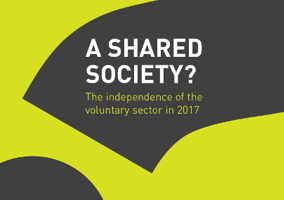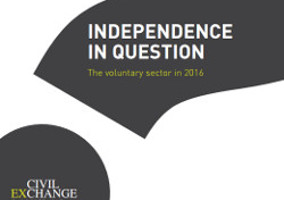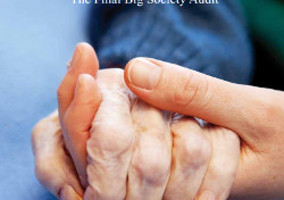Karl Wilding, director of public policy and volunteering at NCVO, has criticised a recent report warning of ongoing threats to the charity sector’s independence from government and said that the sector should focus more on its strengths.
Civil Exchange published the sixth in a series of annual reports on the independence of the sector earlier this week, which warned that the sector’s independence was “under serious and growing threat”.
It cited the continued existence of Lobbying Act, gagging clauses in contracts, how the Charity Commission handled guidance on European Union referendum and introduction of new government grant standards as evidence that things were worsening. It also called on the Prime Minister to renew the government’s commitment to the Compact.
But in a blog on NCVO's website, Wilding described the report as “unduly pessimistic” and said that some of its recommendations were too vague.
“If you want to have real influence you have to make practical, tangible recommendations, not vague wish-lists,” he said.
‘An alternative narrative’
Wilding urged the sector to “reframe the argument and focus on the positive difference that our sector makes”. He said charities should talk to people who disagree with them in language that those people will be able to relate to.
“Frankly, some people think charities shouldn’t campaign or be political,” he said, adding that telling them “that they are wrong, or that they are doing bad things to us, or that they don’t understand us, doesn’t work”.
He also urged the sector not to think of itself as powerless and said it should build on the recommendations from the recent House of Lords report.
“The central message from the Lords report we should be sending is that a confident, independent and resilient voluntary sector has many strengths upon which to build. We have nothing to fear but fear itself.
“There are clearly challenges we have to address. Maybe one of them is to stop telling ourselves that everything is getting worse.”
Caroline Slocock: ‘Early signs from government aren’t good’
At a seminar to launch the report, Caroline Slocock, director of Civil Exchange, said that the early signs from the new government were not positive, despite the rhetoric around the Shared Society.
She said the government “must learn the lessons from the “big society”.
Slocock said that while Theresa May “seems to have taken up the challenge to give more power to the people”, some of the early initiatives such as abandoning plans to tackle obesity should concern the sector.
“I don’t think the signs are very good,” she said.
She also warned that the continued "sock puppet narrative" about charities lobbying had led to the sector being seen to have “vested interests”.
From Governance & Leadership
Sha also said that there had been progress in some areas.
“Last year I said protect it or lose it and a lot has happened – some of it behind the scenes – and those efforts really need to be applauded, even if the overall picture remains grim,” she said. And that “without these efforts things would be lot worse than they currently are.”
She added that “Brexit has completely changed the whole landscape” which “it does also open up some new opportunities”.
She said Brexit “must open a new chapter” and that the “voluntary sector must take power – it must find its confident voice” but warned that if it losing sight of “independent purpose” is “way people lost power” in the past.
Related articles












